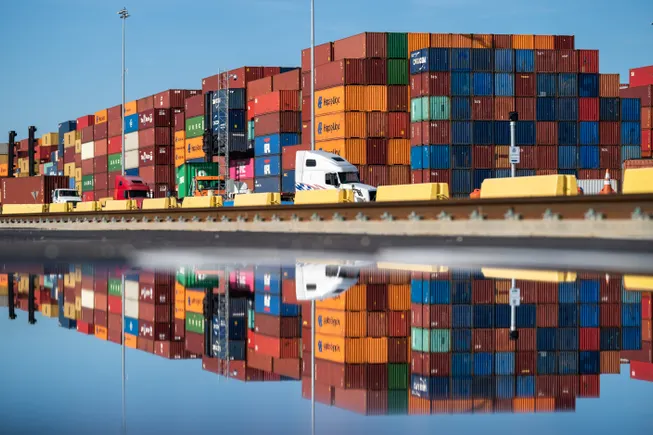
This sound is produced automatically. Please let us know if you have feedback.
According to the October 10th declaration of the White House, the United States plans to impose penalties for countries that support the net zero framework of the International Maritime Organization, according to the October 10th Declaration of the World Taxation, which aims to decorate the international transport sector.
According to a joint statement by Marco Rubio, the Minister of Energy Chris Wright and the Minister of Transport Duffy, the economic impact of the proposal “could be catastrophic”, citing forecasting of global transportation costs, can increase by 10 % or more. The secretaries did not provide more details on the forecast of shipping costs.
In turn, the United States considers the following actions against the nations that vote in favor of NZF IMO:
- Review and consider possible regulations to combat anti -competitive practices from some flagship countries and block potential ships registered in those countries from US ports
- Imposing Visa Restrictions, such as Increasing Costs and Processing, Mandatory Requirements for Reconciliation and/or Review of Citcher Visas C-1/D
- Applying business penalties from US government contracts, including new commercial ships, liquid natural gas terminals and infrastructure and/or financial penalties on flagship ships under countries that benefit NZF
- Imposing additional port fees on, managed or flag -out ships by countries that support NZF
- Evaluation of sanctions for authorities who support “active climatic policies that make US consumers burden”
According to the White House statement, “the government clearly rejects the proposal before IMO and does not tolerate any action to increase the costs of citizens, energy providers, transport companies and their customers or tourists.”
Lars Jensen, CEO of Maritime Vespucci, said in a recent post: Although the United States claims that possible penalties to protect the country’s economic interests may have an impact.
“But imposing costs or restrictions on ships or shipping merely increases the cost of shipping to the United States and therefore puts the financial cost for US exporters and importers,” he wrote.
NFZ IMO was approved by the Naval Environmental Protection Committee in April And it combines the limitations of greenhouse gas emissions and greenhouse gas pricing throughout the maritime industry. The proposal will increase the standard of the new ship’s fuel and the global pricing mechanism for greenhouse gas emissions.
The committee is scheduled to review the draft reform at the October 14th to October 17th meeting at the IMO headquarters in London.